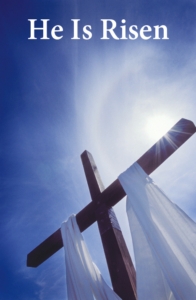Opinion
The collects of Easter: The Seventh Sunday
By Msgr. James P. Moroney
Posted: 5/18/2012


iStock photo
The Solemnity of the Ascension of the Lord is celebrated on different days in different places throughout the world. Sometimes it is celebrated on the fortieth day after Easter, the Thursday before the Seventh Sunday of the Easter Season. In other places it is transferred to the Sunday following "Ascension Thursday."
In the Metropolitan Province of Boston (and the provinces of Hartford, New York, Newark, Philadelphia and Omaha) we celebrated the day the Lord ascended into heaven on Ascension Thursday; this commentary is about the Collect or opening prayer for the Seventh Sunday of Easter:
Graciously hear our supplications, O Lord,
so that we, who believe that the Savior of the human race
is with you in your glory,
may experience, as he promised,
until the end of the world, his abiding presence among us.
Notice how, even though we have already celebrated the Ascension of the Lord, the collect refers to day on which "the Savior of the human race" ascended to dwell in glory at the right hand of the Father. Indeed, the whole prayer is a meditation on what that blessed event means for us.
The prayer centers on the parting words spoken by the Lord to his disciples before he returned to heaven, that he would be with them until the end of the world.
The old expression, "out of sight, out of mind," reminds us that the moment we no longer see someone, we are naturally moved to believe they are gone completely from our lives. That's a perennial problem with belief in God, who is present to us in a very real way at every moment of our lives, but often in an unseen manner.
Moses was the first to see God, in the burning bush. He heard God's voice, and when, on Mount Sinai, he stood face to face with God, his hair turned white and his face was radiant.
In Jesus, we have seen God face to face. He became a man "like us in all things but sin," he walked among us, taught us how to be holy, and was nailed to a cross for our salvation. He rose in bodily form and walked among us and, even now, gives us his Body and Blood as our food and drink. He remains dwelling in us, as we remain dwelling in him.
Yet there are times, particularly when we must face suffering or pain, when we find it hard to believe in the presence of God. At such times, when prayers seems empty and dry, we have been taught by the great saints of the Church to pray for the gift of faith, for the grace of awareness of the presence of God in the midst of our greatest trials.
Indeed, the Lord Jesus himself, knew a feeling of desolation, when from the wood of the cross he knew "the crushing burden of a mission which had to pass through humiliation and destruction. For this reason he cried out to the Father. ... "My God, my God, why have you abandoned me" (Psalm 22:1)
"Sacred history," Pope Benedict XVI has reminded us, "has been a history of cries for help from the people, and of salvific responses from God." Psalm 22 concludes, however, with a prayer "which rends the heavens because it proclaims a faith, a certainty, that is beyond all doubt. By placing all our trust and hope in God the Father, we can pray to Him with faith at all moments of anguish, and our cry for help will turn into a hymn of praise." (Pope Benedict XVI, Sept. 14, 2011).
Then, like the disciples, we will be found "persevering with one mind in prayer with ... Mary, the Mother of Jesus" (Acts 1:14), awaiting the gift of the Holy Spirit, and waiting in joyful hope for the coming of Our Lord Jesus Christ in glory at the end of time.
Msgr. James P. Moroney, presently professor of liturgy at St. John's Seminary, Brighton becomes the 20th rector there on July 1, 2012. This is the seventh of a series of reflections on the collects of the Easter season.